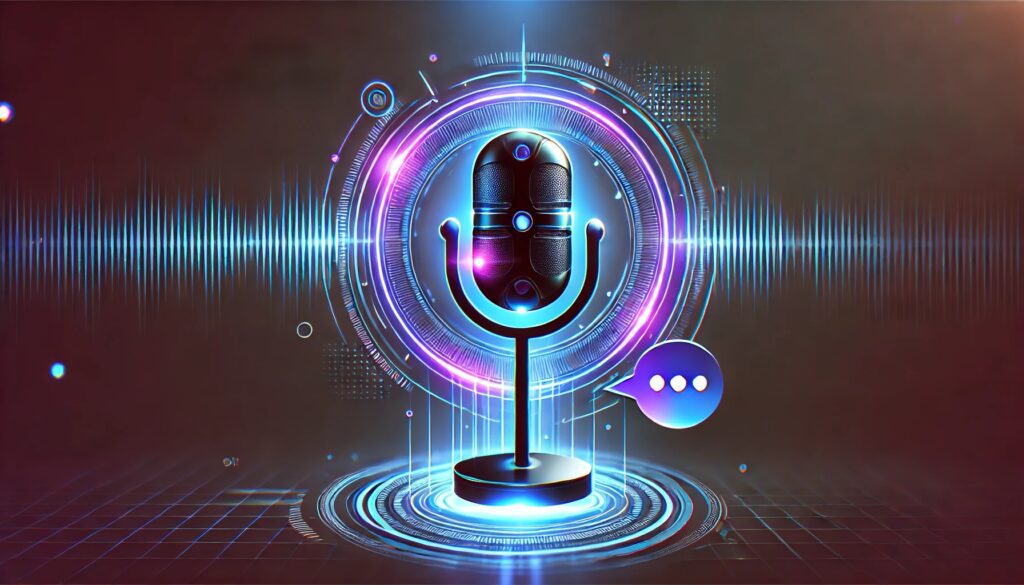
OpenAI’s Voice Assistant: A Deep Dive into the Future of AI-Driven Conversations
OpenAI has recently made waves by launching a voice assistant for its ChatGPT platform. This innovation marks a significant leap in AI technology, offering users the ability to interact with the model using voice commands, thereby enabling more natural and intuitive conversations. Here’s an in-depth look at what this development entails, its implications, and the challenges that come with it.
The Technology Behind the Voice Assistant
At the heart of OpenAI’s voice assistant is an advanced text-to-speech (TTS) model that can generate remarkably human-like speech from just a few seconds of audio input. This model, developed in collaboration with professional voice actors, ensures that the AI can produce voices that are not only realistic but also versatile, catering to a wide range of applications.
In tandem with this TTS model, OpenAI has integrated Whisper, its open-source speech recognition system. Whisper excels in transcribing spoken language into text, which is crucial for understanding user commands and generating appropriate responses. This combination of speech synthesis and speech recognition technology enables the AI to engage in fluid, real-time conversations that feel more natural than text-based interactions (OpenAI).
Addressing Safety and Ethical Challenges
While the technology is groundbreaking, it also presents new challenges. One of the primary concerns is the potential for misuse. The ability to generate highly realistic synthetic voices could be exploited for impersonation or spreading misinformation. Recognizing these risks, OpenAI has adopted a cautious approach to the rollout.
The company initially delayed the broader release of the voice assistant by a month to enhance its ability to detect and block inappropriate content. This delay reflects OpenAI’s commitment to ensuring that the technology is not only effective but also safe and ethical. The company is focused on improving the AI’s content moderation capabilities to prevent the misuse of the voice assistant in real-world applications.
The Rollout Strategy: Gradual and Controlled
OpenAI’s approach to releasing the voice assistant is intentionally gradual. The initial rollout was limited to a small group of ChatGPT Plus subscribers, with broader access planned for later in the year. This strategy allows OpenAI to gather valuable feedback from early users, refine the technology, and address any unforeseen issues before making it widely available.
This cautious rollout also serves to manage user expectations and avoid potential backlash. Earlier this year, OpenAI faced criticism for delays in rolling out the voice assistant, with some users expressing frustration over the postponed release. However, the company’s focus on safety and reliability demonstrates a responsible approach to deploying such powerful technology.
Applications and Future Potential
The implications of this voice assistant are vast. For accessibility, the voice assistant could be a game-changer, particularly for individuals with visual impairments or motor disabilities, who may find voice interactions more intuitive and less cumbersome than typing. Moreover, the assistant’s ability to handle complex queries and provide spoken responses opens new possibilities for creative applications, such as interactive storytelling, personalized learning experiences, and more engaging customer service interactions.
As OpenAI continues to refine this technology, it’s likely that we’ll see it integrated into a variety of platforms and devices, from smart home assistants to mobile apps. The ability to converse naturally with AI could transform how we interact with technology on a daily basis, making it more personal and responsive to our needs.
Looking Ahead: Challenges and Opportunities
While the potential is enormous, so too are the challenges. Ensuring that the voice assistant can handle a wide range of accents, dialects, and languages will be crucial for its global adoption. Additionally, as the technology becomes more widespread, there will be ongoing concerns about privacy, data security, and the ethical use of AI-generated voices.
OpenAI’s voice assistant is a bold step forward in AI innovation. By carefully managing its rollout and focusing on safety and ethical considerations, OpenAI is setting the stage for a new era of human-AI interaction that could redefine our relationship with technology. For those eager to explore this new frontier, staying informed on the latest developments is essential.
To dive deeper into the technical details and keep up with the latest updates, you can read more here and here.
Meet CARMEN: Your Robotic Companion for Cognitive Health
DeepL Launches Next Generation LLM
The Rise of AIoT: Revolutionizing Industries with Smart Connectivity





